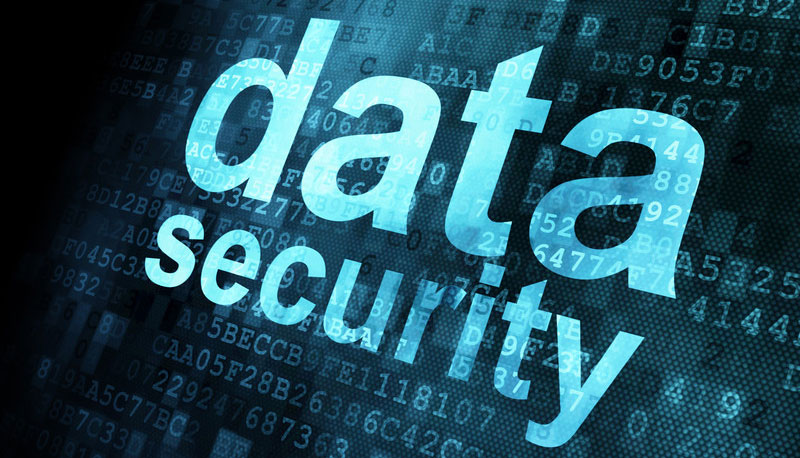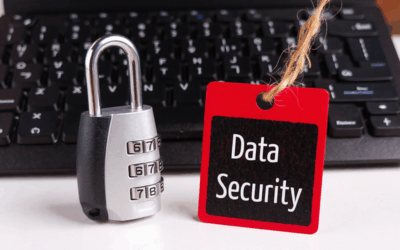Your data is always at risk. During each movement from one repository to another, data could be compromised. That is what makes data security an overarching concern these days. When performing data processing in-house or when utilizing outsourced solutions such as data conversion services to convert your paper-based data into digital format, you must pay great attention to data security. Data security is all about the practice of securing data using powerful hardware and software technologies. It ensures that the data you have is accurate and reliable. An effective data security plan includes aspects such as collecting only the required information, safeguarding the stored data and destroying any information that is no longer important. Following these steps would help businesses meet the legal obligations of possessing sensitive data.

According to a report from Privacy Right Clearinghouse, over 10 billion online records have been compromised since 2005. 4 percent of data breaches involved encrypted data and 96 percent involved unencrypted data which could be easily hacked by cyber criminals. According to Data Age 2025, a report by IDC (International Data Corporation) and Seagate, by 2025 the data sphere could be as large as 163 zettabytes and 90 percent of data will need some level of security. A recent report from Markets and Markets estimate that the cyber security industry could reach $231 billion by 2022.
Senators Are Calling for Strict Privacy Laws after Marriot Hack
After the Marriott Hotel hack which compromised the personal information of 500 million of its customers, Senators are calling for tougher privacy laws and to impose fines on companies that fail to protect crucial customer data from cyber attacks. They are set to impose clear customer data protection standards for all companies. Senators Mark Warner and Ed Markey said Congress needs to set limits on how much customer data US companies are allowed to store. Lawmakers are trying to implement Europe’s aggressive penalties for companies that have poor data security systems. The GDPR (General Data Protection Regulation) requires companies to adhere to a set of security requirements which contains fines up to 4 percent of the company’s annual revenue for violations.
A spokesperson said that he is preparing a bill which will be introduced early next year, which would set up a new office with the Federal Trade Commission called the Bureau of Technology. The office will be given the powers to punish businesses for negligent data security practices. The bill would also set up new data security requirements such as ‘do not track’ list for individual consumers to opt out of data collections online, steep fines on the first offense for companies, and 10- to 20-year criminal penalties for senior executives.
To address this issue, Senator Chuck Schumer said that Marriott should bear the expense for new passports for all customers whose passport numbers were stolen. Marriott has accepted responsibility for the breach. The compromised data includes customers’ passport numbers, phone numbers, travel locations, credit card numbers and so on. The breach could possibly leave a number of customers vulnerable to espionage or identity theft. Marriott president and chief executive Arne Sorenson said that they are doing everything to support their customers. However, this apology is not enough for lawmakers who pointed out that businesses like Marriott can no longer be trusted to police themselves when it comes to data security.
There have been many major breaches in the last few years that have risked millions of customers’ critical data. But now US companies rarely face fines for breaches. The last major US corporate cyber security overhaul was the 2014 Cyber Security Enhancement Act that led to a voluntary set of standards managed by the National Institute for Standard and Technology (NIST).
Ron Gula, a cyber security investor who founded the Maryland-based cyber security company Tenable Network Security, said that Warner and Markey’s idea of setting limits on personal information that companies could store would be realistic for businesses like Marriott. However, penalties can help improve data security. Businesses must demonstrate that they are investing in data security, not just to stay compliant with the law, but also to protect customer data.
Tips to Protect Your Data
- Back up your files in an external storage: Make sure to back up your critical data against cyber attacks like ransom ware and physical theft.
- Avoid software or hardware with weak features: Consider the vulnerabilities when you purchase a new hardware or software. Investing in systems that are free from patchy histories is the best way to secure your business data.
- Eliminate hazy emails: When you check your emails, make sure not to click on incomplete messages or those that appear like a scam. Sketchy emails are a tool that cyber criminals often use to penetrate into your system. You can avoid spam emails by using folders when separating questionable emails, fortifying the settings of your spam filters and toggling the security settings of your email suite to avoid potential threats.
- Educate employees: Your employees must have adequate knowledge regarding how to protect critical data. Often, employees fall prey to cyber criminals. This is because of lack of knowledge about cyber threats. So, educating employees is important; learning and understanding how cyber security works and how cyber attacks are made could be a big asset when fortifying data.
- Use VPN: Make sure to use VPN when browsing unfamiliar networks. This would encrypt and anonymize traffic from your computer and render it incomprehensible to potential hackers.
- Update your anti malware programs: Cyber threat constantly changes so make sure to update your anti malware system and evaluate them in a consistent manner by using same templates to find the latest version.
- Protection from unauthorized access: Most of the time, documents are scanned into PDF files that are more secure than papers. This prevents unwanted access to the data and helps in keeping the documents confidential. Using PDF software, documents can be saved with a strong password to prevent illegal access. The second method is redaction; this helps in covering up the text or images or replacing the selected areas pixel by pixel with redaction fill. It is important to save a copy of the original PDF.
Document conversion services help enterprises in their digitization process, which is a very efficient way to handle huge volumes of data. But make sure to choose a reliable vendor to prevent leakage of information or activities that could create threats of being hacked or misused. Organizations must take all necessary measures to ensure data protection.



